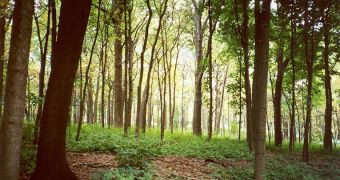According to a new set of scientific studies, it would appear that spending time in nature, be it in the park, in a backyard, or in a forest, actually promotes mental health. People who expose themselves to nature even more, such as those who travel a lot, who go hiking, or who spend a lot of time climbing mountains, are more balanced and exhibit a much more solid mental state than individuals who spend most of their time in the concrete jungle. The new investigation would appear to suggest that people have an innate connection with nature, without which they become sick, LiveScience reports.
This need for a permanent contact with nature may be the driving force behind many conditions such as depression or anxiety, though no studies to clearly establish this correlation exist. But, given the fact that modern pressures have been associated with increased levels of stress, it stands to reason that calming yourself in a natural environment, away from noise and pollution, can be a very good thing, even if it lasts only five minutes. Ideally, people should spend a lot more time than this connecting with nature, or simply relaxing.
“For the first time in the scientific literature, we have been able to show dose-response relationships for the positive effects of nature on human mental health,” explains Jules Pretty, who is a research scientist at the University of Essex, in the United Kingdom. The new analysis was based on the results of 10 separate studies conducted in the UK, which covered a total of 1,252 people. Some of the activities that were considered connecting with nature include farming, gardening, fishing, walking, horse-riding, and boating. After being exposed to such activities for a mere five minutes, test subjects reported increased levels of self-esteem. This may be related to the need for lightheartedness, which apparently characterized our ancestors even when they were living in caves.
“We believe that there would be a large potential benefit to individuals, society and to the costs of the health service if all groups of people were to self-medicate more with green exercise,” adds Jo Barton, who was a co-researcher for the new study. A paper detailing the findings appears in the latest issue of the American Chemical Society's scientific journal Environmental Science & Technology. The team highlights the fact that, while natural environments were beneficial in themselves, areas that also featured lakes or rivers were even much more so.

 14 DAY TRIAL //
14 DAY TRIAL //